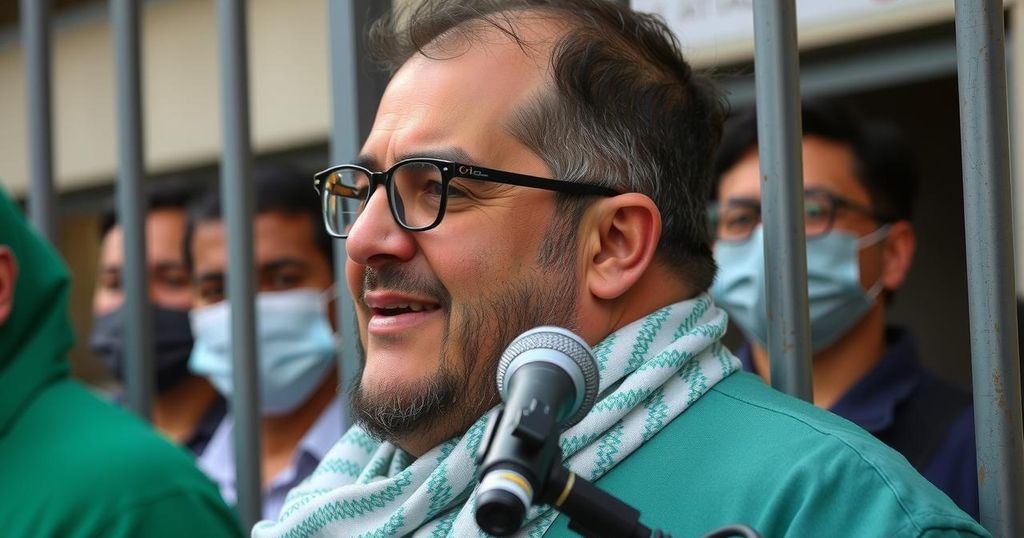Moroccan Activist Sentenced to Prison for Protests Against Earthquake Response

Said Ait Mahdi, a Moroccan activist, was sentenced to three months in prison for leading protests against the government’s inadequate earthquake response. The case, criticized by human rights advocates as politically motivated, reflects broader issues of civil liberties in Morocco. Despite the government’s pledges for recovery funding, many victims remain in precarious living conditions, igniting public protests and calls for justice.
On Monday, Said Ait Mahdi, a prominent Moroccan activist, was sentenced to three months in prison for leading protests against the government’s response to a major earthquake that devastated the Al Haouz region. Ait Mahdi, president of a key local activist group, faced multiple charges, including defamation and inciting an unauthorized demonstration. His attorney noted that the sentence was light compared to typical sentences for similar charges in Morocco. This case has attracted significant attention from human rights organizations that assert it is politically motivated and aimed at stifling dissent in the wake of government failures to adequately support earthquake victims.
The recent 6.8-magnitude earthquake, occurring in September 2023, led to the loss of nearly 3,000 lives and left thousands homeless as damages included the destruction of homes, schools, and health facilities. Ait Mahdi’s arrest comes amidst increasing public protests, where demonstrators have expressed their frustrations over the government’s ineffective recovery efforts. Though other activists facing similar allegations were acquitted, Ait Mahdi’s conviction signals a troubling trend of repression against those who speak out on behalf of marginalized communities in Morocco.
In light of these events, civil liberties advocates have condemned the Moroccan government’s swift action against Ait Mahdi as retaliatory and arbitrary. The Moroccan Association for Human Rights issued a statement asserting that his sentencing serves as a warning to others who might raise their voices in protest against governmental authority. Moreover, the coalition supporting Ait Mahdi emphasized the necessity for his immediate release and denounced the restrictive measures employed to silence activists. This incident underscores the need for sustainable recovery efforts in regions affected by the earthquake, particularly for populations often marginalized in national discourse.
The recent earthquake in Morocco has resulted in severe repercussions for the Al Haouz region, revealing systemic inequalities and mismanagement in disaster recovery. Ait Mahdi’s activism highlighted the plight of earthquake victims, as many residents continue to live in precarious conditions well after the disaster. The government’s insufficient response has prompted public outcry, with various activist groups rallying to demand accountability and more substantial aid for those affected. The situation reflects broader challenges within Morocco regarding civil liberties and the treatment of dissenting voices.
Said Ait Mahdi’s sentencing is emblematic of the ongoing struggles faced by Moroccan activists advocating for human rights and proper disaster response. This case has raised awareness about the implications of government actions against dissent and the need for greater accountability in managing recovery efforts following the catastrophic earthquake. Calls for his release and a shift in governmental approaches to civil rights indicate a growing awareness and urgency for reform in Morocco’s political landscape.
Original Source: www.independent.co.uk






